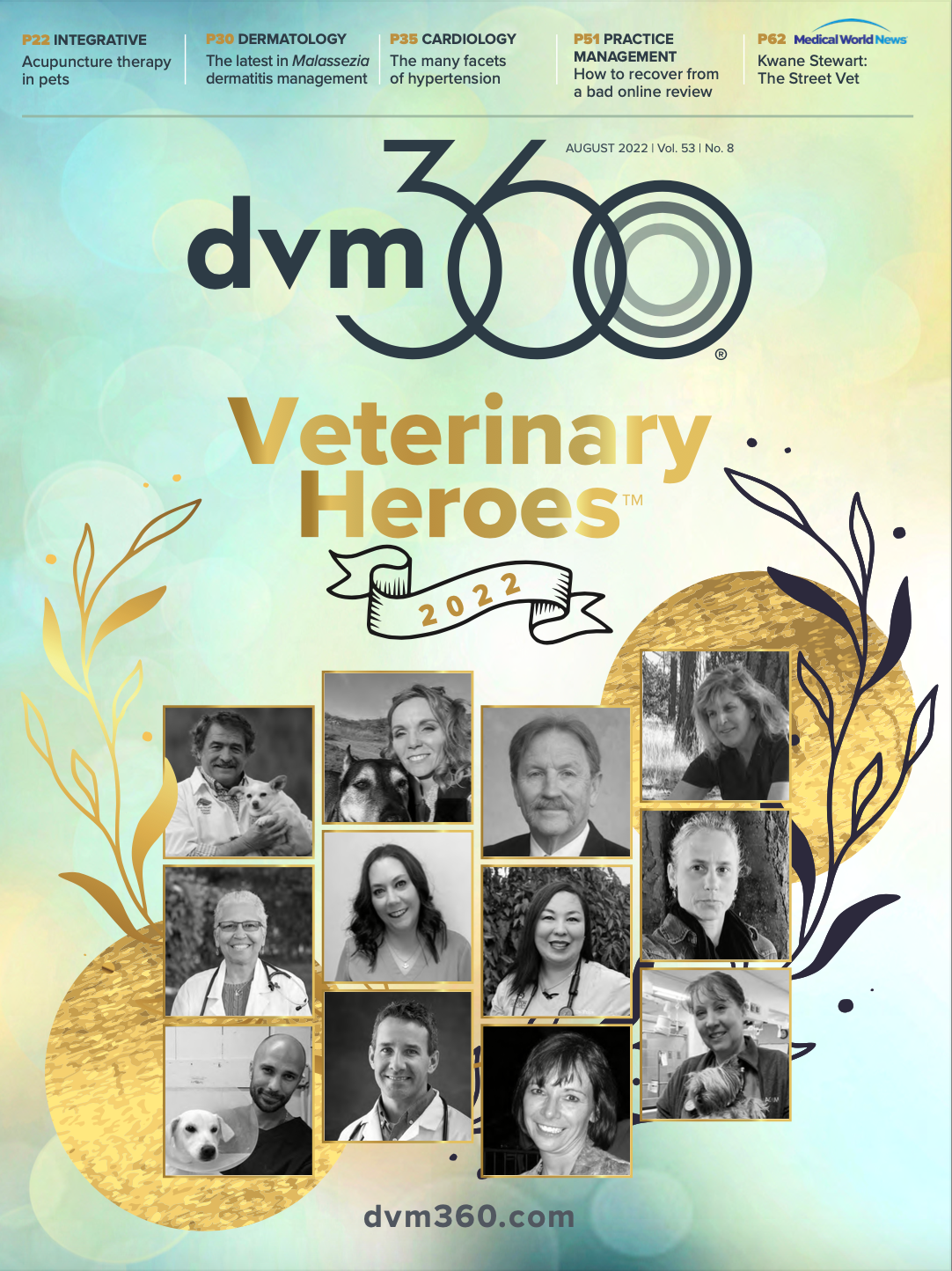ACVPM has a long history of moving preventive medicine forward
The organization has worked to improve patient outcomes for the past 72 years
Seventyfour / stock.adobe.com

The health of the animal kingdom, the environment, and of humans all benefit from quality preventive veterinary medicine. Veterinary preventive medicine is a discipline concerned with improving animal and human health through the prevention and control of animal diseases, infectious waste contamination and related human illnesses. The American College of Veterinary Preventive Medicine (ACVPM) believes the process of becoming board certified in veterinary preventive medicine enhances personal skills and expands professional expertise to this end. ACVPM diplomates work in private practice, regulatory medicine, diagnostic medicine, extension service, public health, epidemiology, food safety, research, teaching, herd health management, population medicine, consulting, and other similar activities.
Established in 1950, the ACVPM is one of the oldest veterinary specialty organizations recognized by the American Veterinary Medical Association (AVMA). The ACVPM offers the option of a specialty in epidemiology, with board certification in preventive medicine. Becoming a diplomate means joining some of the most distinguished veterinary professionals in preventive medicine and public health at local, state, national and international levels. Nearly 1200 active and emeritus diplomates currently belong to the ACVPM.
The ACVPM began when 12 veterinarians formed a council to establish the American Academy of Veterinary Public Health during the 1949 annual meeting of the AVMA in Detroit, Michigan. James H. Steele, DVM, MPH, a legend in veterinary public health, served as the first secretary. The council created a committee to establish the definition of veterinary public health and another to write the bylaws and include criteria of eligibility. The council met again in October of 1949 and redesignated itself as the American Board of Veterinary Public Health (ABVPH) and was incorporated as a nonprofit organization in 1950.
The ABVPH spent its first year processing and approving applicants for charter fellowships, adding 21 additional ABVPH fellows. In 1951, the AVMA House of Representatives approved the ABVPH and the American College of Veterinary Pathologists as the first recognized specialties in veterinary medicine.
The first board certification exam was conducted in October 1952 at the American Public Health Association meeting in Cleveland, Ohio. Seven military veterinarians took the exam; all passed and were certified as veterinary public health specialists. By 1960, sixty more veterinarians were examined and certified as ABVPH fellows, and the board replaced “fellow” with “diplomate”
In 1978, the ABVPH transitioned to the ACVPM. This event joined veterinary public health and veterinary regulatory medicine practitioners into a single veterinary preventive medicine specialty organization. It met officially for the first time on July 17, 1978, with Dr John H. Helwig presiding. Helwig was succeeded by Dr William E. Jennings. In honor of these leaders, the ACVPM created the Helwig-Jennings Award to recognize diplomates who have rendered outstanding and prolonged service to the college.
The ACVPM now proudly represents nearly 900 active and 300 emeritus diplomates who represent the wide variety of career option available in veterinary preventive medicine. ACVPM diplomates are in virtually every state and 22 countries and are involved in activities that range from teaching future veterinarians, investigating disease outbreaks, uniformed services, or holding senior leadership positions in local, state, federal and international organizations. Veterinarians who seek diplomate status must successfully pass a 2-day certification exam consisting of a 5-section essay test and a 300-question multiple choice test. These tests cover infectious disease, environmental health, food hygiene or safety, epidemiology, and public administration and health education. Applicants must have graduated from an AVMA-accredited veterinary school, hold the Educational Commission for Foreign Veterinary Graduates certificate or be licensed to practice veterinary medicine in some state, province, territory, or possession of the United States or other country, and have at least 4 years of experience in 3 or more areas of veterinary preventive medicine.
ACVPM diplomates can also seek specialty certification in epidemiology. This AVMA-approved specialty is open to diplomates who meet the eligibility requirements and pass the epidemiology specialty certification exam. The specialty currently has 51 active and 28 emeritus diplomates.
There are many reasons veterinarians apply for ACVPM certification. Military and some federal veterinarians are eligible for board certification specialty pay. In addition, ACVPM certification is a distinguishing professional career accomplishment. Peer recognition for one’s qualifications and competence in the exclusive practice of a specialty is a rewarding experience in and of itself. ACVPM diplomates also share many common professional objectives that focus their efforts and improves the quality of professional services.
The college has not only been an instrument not only for certification of veterinary specialists and the advancement of veterinary public health and preventive medicine but also the basis for the formation of lasting friendships and experiences between like minded practitioners, as well as enhancing professional relationships. The college has a distinguished heritage, counting among its diplomates some of the most outstanding veterinary personalities in public health and preventive medicine on the national and international scene. More information about the ACVPM, the board certification process, and the epidemiology specialty can be found at www.acvpm.org.
To learn more about the importance of preventative medicine, check out this article written by Jen Chatfield, DVM, DACZM, DACVPM.
Thomas Berg, DVM, MPH, DACVPM, is the executive vice president of the American College of Veterinary Preventive Medicine.
